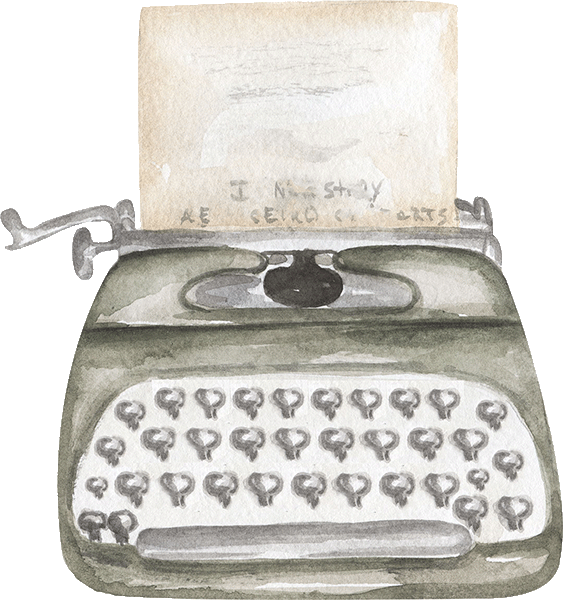
Prologues are, perhaps, the most greatly debated technique out there.
They are greatly overused. Some stories – most stories – are better off without their prologues.
They are out of style. Most publishers and readers dislike them. I’ve heard that some even skip them. Though I think that’s kind of stupid. Why bother reading the book if you’re just going to skip a whole portion of it?
But, in my opinion, they aren’t always to be banned.
What is a prologue? How do you know if your book could use one? How do you write an interesting, informative prologue? Read on! 🙂
A prologue is a few pages (or even just paragraphs) of a novel that begins before chapter one. I have one in The Dressmaker’s Secret.
The Purpose of Prologues:
- To give a short bit of backstory for one of the main characters.
- To hook the reader. Though make sure that your first chapter – and every chapter after that – is steadily pulling the reader in! 🙂
- To give an introduction to the novel’s world, time period, genre, mood, or main characters. In The Dressmaker’s Secret, my prologue – hopefully – introduces the time period, genre, mood, and two of the primary characters.
The Dos and Don’ts of Prologues
- Never put too much info in a prologue. A prologue is not an information dump any more than a first chapter is. Spread anything your reader needs to know throughout the book. The time for a beginning-of-a-Star-Wars-movie summary is never.
- Never write a prologue that has nothing to do with the story. Though a prologue shouldn’t be necessary to the story – you would be able to remove it without serious damage to the plot – it should have something to do with the plot. Never stick a random, exciting scene onto the beginning of your book.
- Never write a prologue just to pull a reader in. Hook the reader in chapter one, and keep him/her hooked from then on. If it’s true that many people just skip the prologue, then obviously the purpose of the prologue will be totally lost.
- Never write a long prologue. Prologues are meant to be short. Shorter than the average chapter, at the very least.
- Never write a prologue that could simply be chapter one. Just title it chapter one if that’s what it is. No need to be fancy. Just start the story, for heaven’s sake!
And after all that negativity, let’s be positive! 🙂
- Write prologues that stand apart from the novel in some way. Whether it be in time period or POV, make your prologue outstanding! 🙂
- Write prologues that can be taken away from the book without subtracting from it, yet add to the book. Think of a prologue as an adjective. Your novel is the noun the adjective is describing. You don’t need the prologue to give your book more meaning, but it makes it more interesting and adds depth.
- Write prologues with that foreshadow. Intriguing, subtle foreshadowing is one of the best things to do with a prologue.
- Write prologues from the point of view of a minor character, of the antagonist.
Well, I think that’s about it! I’d love to see your questions and/or comments! 🙂
~Kellyn Roth


18 Responses
I usually save prologues for (mainly) prophecies, but sometimes for poems, chants, poems and other pieces of literature from the world of my novel that reflect the novels events or is just really important later.
Well, prophecies are a pretty good way to start a book, I’d think! 🙂
Prologue are probably good sometimes, but the latest book I read had a LARGE prologue (like, 40 pages) that was confusing and boring. I still don’t know what it had to do with the story. (It was The Scarlet Letter) That left a bad taste in my mouth. 😉 I’m sure you would have a much better prologue, though!
CutePolarBear
Well, like I said, prologues aren’t supposed to be long. I think I started The Scarlet Letter once and the prologue scared me off. XD
Yeah, it was pretty frightening. 😀 It was for school, though, so I had to keep reading. The actual book was pretty good.
CutePolarBear
I really ought to finish it. After all, it is a classic, and I’ve heard it’s good from quite a few people … 🙂
Yeah, it always is good to read the classics. 😉 But oh man, the vocabulary! There are some loooong words in that book.
CutePolarBear
I usually end up guessing the meaning for most of them. And then I’ll get the meaning wrong. “Wait, what?” XD
Heh, I wrote a prologue for my novel Oracular and then realized… it’s basically chapter one. Oops.
I’m pretty sure certain I’ll be changing it to just chapter one. I don’t know yet if I’ll be creating a new prologue for it or not—we’ll see about that.
Good post!
Thanks! 🙂 And … yeah, I did that with Ivy Inquis – I mean, Introspective … and another book. Prologue just sounds so much more … distinguished. XD
Hehe, exactly.
Y’know, I’ve been thinking about doing a prologue for my first book of a trilogy that kind of foreshadows things for all three books. Your thoughts?
You could do that. I personally like a good prologue here and there … but it’s really up to you! 🙂
I like fiction with long, information-dumping prologues, as already practised by Victor Hugo and Henry Fielding; consequently, I will not be deterred by anyone whatsoever from writing this kind of prologues.
Well, it’s a matter of taste. For me, a prologue shouldn’t contain anything that matters and no place should contain an information-dump, but that’s just me. Unless it’s a classic, I can never bring myself to read long paragraphs of information.